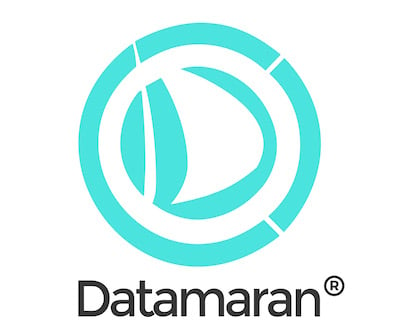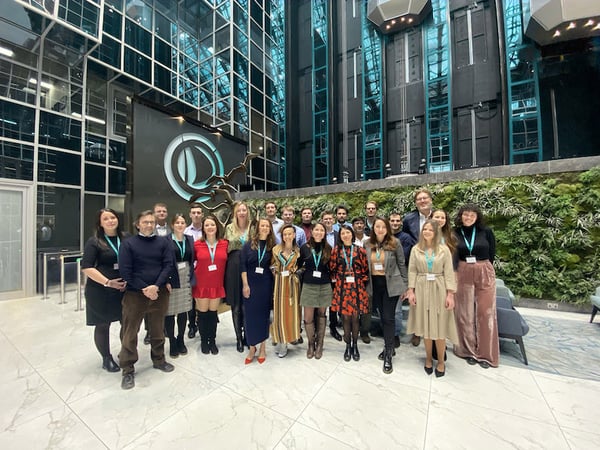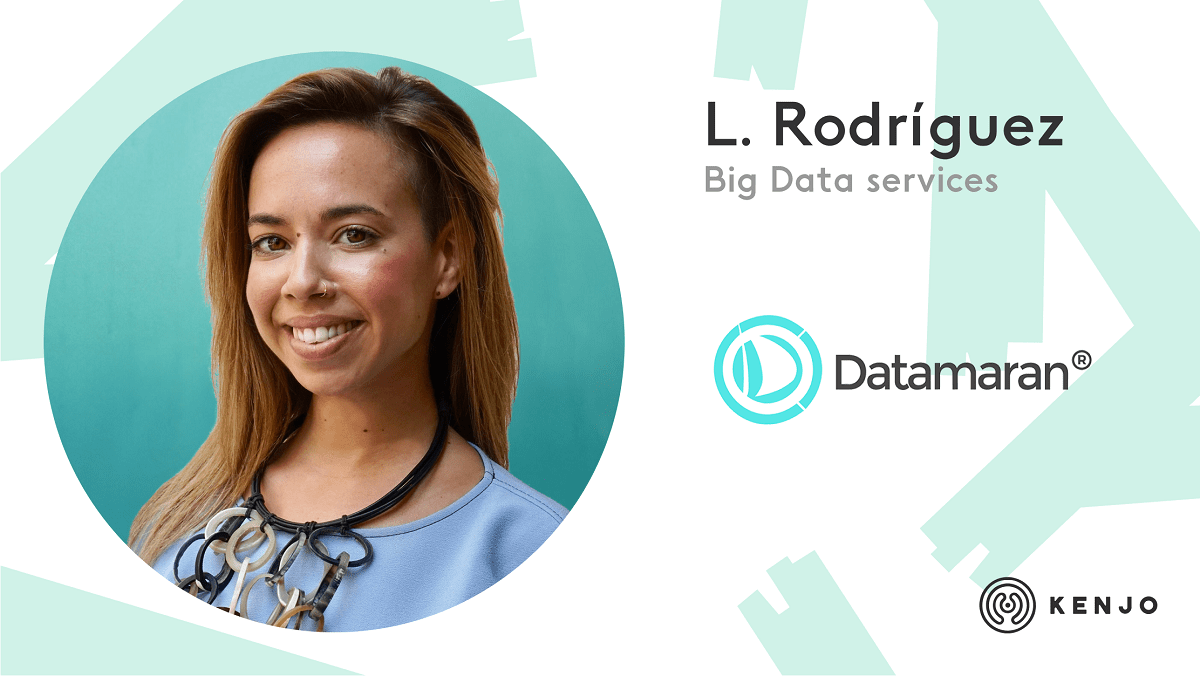Today we talk to Laura Rodriguez, HR Manager of Datamaran. A true professional who shines for not being a typical HR manager 😜
As you know, at Kenjo we’re always open to hearing from professionals who want to share their experience. ➡️➡️ If you’d like to collaborate with Kenjo, get in touch with Rubén Medina, our Marketing Director via rmedina@kenjo.io ⬅️⬅️

Who is Datamaran? Why are they constantly growing?
Technically, Datamaran is a world leader in SaaS systems for nonfinancial risk management. The company helps organisations to successfully develop their business processes through the continuous monitoring of issues related to the fields of risk and sustainability.
We use technology to support the decision makers with an improved material analysis process, that perfectly integrates Enterprise Risk Management (ERM) into corporate strategy.
To me, Datamaran is a group of highly professional people who represent the company of the future: responsible people in a sustainable company that contribute to a cleaner planet. I also like to think that we’re looking after the planet from three different hubs: London, Valencia and New York, which are also reinforced by some equally important branches in other countries: Germany, Chile, Ecuador, France, India and Italy.
What is your role within Datamaran? Why did you choose to be a human resources manager?
I do a little bit of everything, just like everyone else in a startup. In Valencia, where we have our Technology Centre, I co-manage the operations area. This is on top of HR-related tasks, such as recruitment process and onboarding, development and implementation of policies and procedures, and fostering company values and culture through a positive work climate, among others. It also includes everything an office - and/or company - needs to run smoothly from a practical and logistical point of view (legal, accounts, payroll, events, travel, etc.).
On a global level, if we weren’t talking about a startup, yes, my role is more focussed on human resources. A more dedicated – and awesome – operations team complement my work in other areas.
Some of your work colleagues praise you for not being the typical HR manager, why do you think they say that?
I think key to this lies in the fact that:
- I don’t believe that to be a manager you have to (or it is enough to) wear a jacket and hang lots of certificates on your wall.
- I try (and I’m not the first, or the last) to manage human resources from the heart. I strive to be empathetic and inspire confidence so that our employees feel comfortable, satisfied and grow both personally and professionally as part of the Datamaran team. I think it’s important to know the needs and potential contribution of each employee (as well as their strengths and weaknesses) to be able to interpret and relate to them in a way that helps them be the best they can be, from the start.
We know they’ve passed the CV test - and/or any other technique, if any - and now their part of the team for one reason or another. I’m always mindful of a premise I learnt years ago: we may be professionals, but we are also people. I firmly believe that when someone feels good, fulfilled, useful, who contributes and feels part of a community (sense of belonging), a feeling of well-being is emerges naturally.
It helps you get up - every day, if possible - with a smile on your face and with a zest for living your life just as it is. That includes going to work, doing what you love while doing your bit for society, while having a coffee (or a beer) and sharing a few laughs with like-minded people. We are social animals and we work better in a team. That’s the way it is - most of the time - although we don’t always realise it.
- I’m always aware of all the resources available - both human and non-human - and I try to be conscious of how and where we focus our energies. I consider myself to be (well, almost) a 4X4, irrespective of my qualifications and/or labels. I’m eager to make a contribution and become enriched by the community, as much as I possibly can and at any time, or under any circumstances.

When you first came to the department, what were the biggest challenges you faced on your first day? What plan did you outline to face them?
It was obviously a challenge, and a very special and satisfying achievement in so many ways. It was my first time in IT and I could barely understand programmer-speak. I graduated in advertising and public relations and I worked in events organisation for a number of years. Pure creativity, with a rather illogical and emotional way of thinking, at least in my case. Worlds apart from the logic-solving mindset of these geniuses that spend hours in front of their computers, making weird jokes and breaking down code.
Naturally, I had to hit my reset button and - with a lot of patience - learned a new dialect, but believe me, it works perfectly well (and very fluently). If a problem arises:
- we look for a solution.
- If we find one, we´ll solve in the quickest and most straightforward way possible.
- If we can’t find one, then we’ll scrap it and move on.
Total peace of mind and there are no workplace dramas, as long as we’ve got comfortable chairs and the fridge is well-stocked with chocolate.
Do you have a growth plan? How much are you thinking of growing? How will you guarantee that new recruits adopt your vision and adapt to the processes?
Yes, we’re still growing (or we were...let’s see how COVID-19 treats us). Datamaran will be six years old in June 2020, and it’s three years since it transferred its technology to Valencia. Right now I think we have a well consolidated product, the international team is working cohesively and efficiently and the Datamaran brand is starting to gain good visibility in the sector (we currently have a healthy client portfolio and a few strategic partnerships): ERM (Environmental Resource Management) and EY).
With such a positive reach, we can only hope for (and encourage) the team to keep growing, while we can, and maintain the foundations that have brought us to where we are. We have the soul of a startup! We still believe in cultivating close relationships and I’m confident that, by leading by example, we’ll maintain good foundations.
Then there are the processes that are put in place so that we avoid losing control or direction. We have well developed recruitment processes, from publishing a job vacancy right through to onboarding. We assign tasks to those responsible, as I mentioned before, we work as a team so that incorporation and onboarding flow as organically and efficiently as possible.
And what about culture? How can a startup preserve this when there are new international recruits every month?
Teamwork. We always stay connected and we are good at “receiving and welcoming” new tenants into our home.
An international startup focussed on data analytics needs many technical experts. Do you find it difficult to find the right professionals? What is the average tenure? What is your best recruitment source?
If I’m honest, it should be difficult but I personally don’t have that feeling. We have managed to find professionals whose profiles fit perfectly into Datamaran in a matter of weeks. The key is to act fast, and we’ve got everything ready.
On the other hand, I think that these days, especially in such a dynamic and competitive sector, it’s important to establish ourselves as a sexy brand and that way professionals seek us out and want to be a part of our company.
It’s also super important to cultivate, communicate and demonstrate an established company culture (tech, sustainable, flexible work/life balance, etc.) and values that are particularly motivating and attractive (collaborative, committed, agile and performance-driven).
It’s important to keep moving and stay visible, participating in events and collaborating with international universities works really well for us. There’s a great vibe at Datamaran and you can feel it, it’s contagious.
Thank you, Laura, for this really cool interview! We wish you and Datamaran the best of luck!
You may also be interested in our article about The art of Recruiting Millennials.



